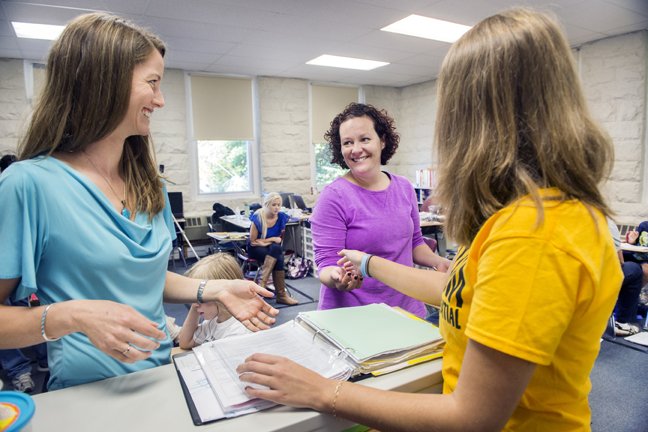Dr. Claire St. Peter’s Laboratory
Translating Behavioral Principles into Intervention: Dr. St. Peter’s research involves bidirectional translation between highly controlled “bench” science and “field” applications of reinforcement-based technologies to reduce maladaptive behavior, with an emphasis on interventions to reduce externalizing challenging behavior displayed by youth. REU participants will gain experience with laboratory-based studies on the processes that govern behavior change when reinforcement-based interventions are implemented with low fidelity. Thus, REU participants will gain experience designing and implementing studies that use parametric evaluations of one or more parameters of an intervention that is known to be effective when implemented with high fidelity. These questions are addressed through the use of a computer-based laboratory model in which non-clinical participants engage in arbitrary responses that are shaped and subsequently “treated” during the experimental session27. This model reliably predicts the effects of reduced procedural fidelity on commonly used behavioral treatments (including differential reinforcement and noncontingent reinforcement) for children with disabilities (e.g., autism, intellectual disabilities, and psychiatric diagnoses associated with externalizing behavior)28,29,30. To carry out this work, REU participants will schedule and conduct research sessions with human participants, then graph, analyze, and interpret the resulting data. The computer model allows for rapid generation of data, allowing REU participants to increase their independence with the research over the course of the REU term, ultimately leading students to conduct a study from initial data collection to final analysis during the REU experience.
